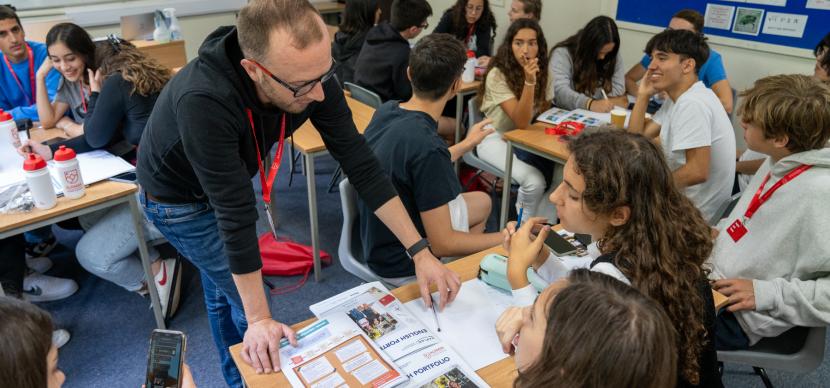Tips for Learning: Essential English Skills

Before you start studying another language, you need to think about why you want to learn it.
Learning a new language should be enjoyable, and studying English should be something you do because you want to, not because you have to. As well as grammar and vocabulary, there are also four main skills you will need to learn when studying a new language – two receptive skills (listening and reading) and two productive skills (speaking and writing). All of these skills are important, and if you want to be able to communicate better in English, you need to be good at all of them.
There are lots of ways to make studying English more enjoyable – here are some of my favourite ones.
Tips for learning how to listen
Music is essential when learning another language, because music and language belong together. Language and music are the two ways that humans use to communicate with each other. It makes sense to listen to one when learning the other, although it may seem a little strange at first. A beautiful tune can stick in your mind long after you have forgotten the words. And listening to music is relaxing – my students tell me that they study better when they feel relaxed.
How can I use music to help me learn another language?
- Look for music in English in a style that you like – Rock, R&B, indie…
- Search for songs that tell a story or help you practise a verb tense. Some of my favourite “grammar through music” websites include Tefltunes, ESL Lounge, and Dave’s ESL Café.
- Aretha Franklin’s "Say A Little Prayer" - practise the use of the Present Simple and Present Continuous tenses
- U2’s “I Still Haven’t Found What I’m Looking For” - practise the Present Perfect tense
- Bob Marley’s “Three Little Birds” - practise the “going to” Future
- Go to YouTube and find your song
- Listen to the song a few times to get used to the sounds, and then write down the lyrics as you understand them. You might find this difficult – you might have to pause the music and rewind or repeat many times to work out all the words. Some musicians use “slang” or phrases that don’t follow the correct grammatical pattern, so this is something to watch out for.
- Go to a “lyrics” website and print the song's lyrics. Two of my favourite lyrics websites are lyrics.com and azlyrics.com. Compare the lyrics that you have written and the lyrics from the website.
- Look up any vocabulary you don't know and write the words down in your vocabulary notebook.
Tip: I find it helpful to write down new vocabulary in alphabetical order, including the part of speech (noun, verb…) along with the stress and pronunciation.
You can also write new words down under topics – for example work, money, holidays. Some of my students find it easier to learn new vocabulary this way.
Why is this? Look at these two lists of words, and ask yourself which one is easier to remember:
- List One (animals): cat, dog, lion, tiger
- List Two (random things): spaghetti, skateboard, banana, castle
Is List One easier to remember? Probably!
Tips for learning how to read
- Read something every day – newspapers, magazines, the internet – anything!
- Have a dictionary nearby, but don’t rely on it. You don’t need to understand every word to understand the meaning of a newspaper report or a story.
- Try reading children’s story books, or graded readers. Penguin Books have a good selection. You don’t want to read something that is too difficult. You need to enjoy what you’re reading, so pick a subject that interests you.
- Watch the news with the subtitles on
Tips for learning how to speak
- Make an English-speaking friend!
- Join an English-speaking club, or study in groups
- Try some tongue twisters – red lorry, yellow lorry, anyone?
- There are some very good pronunciation websites – look at www.shiporsheep.com and the British Council online phonemic chart to help you understand English sounds.
Tips for learning how to write
- Keep a diary. Writing about what you do every day, what friends you see and how you’re feeling will help you practise your English, and provide you with a beautiful book of memories.
- Use social networking – write a blog, post comments on Facebook, send messages to your “followers” on Twitter.
- Email your friends and family in English.
- Write "flash fiction” (very short stories) for fun.
- Translate newspaper stories from your home country into English. Then use the online "translate this page” function to check if you were right. (Remember that the translation will not always be perfect.)
- Write a class newspaper with your friends, or short story collections for your teacher.
There are lots of tips on how to learn a new language available on the internet – that was a small list of my favourites, but I hope you enjoyed them. Keep practising and keep learning. I like to remind students of a good quote from my favourite politician:
If you talk to a man in a language he understands, that goes to his head. If you talk to him in his own language, that goes to his heart.
Nelson Mandela
 617 275-5955
617 275-5955



